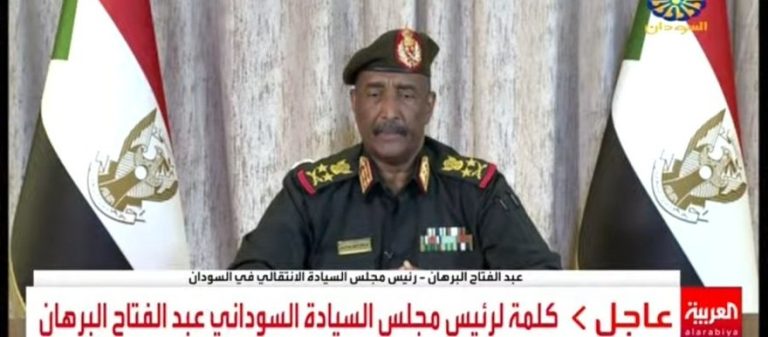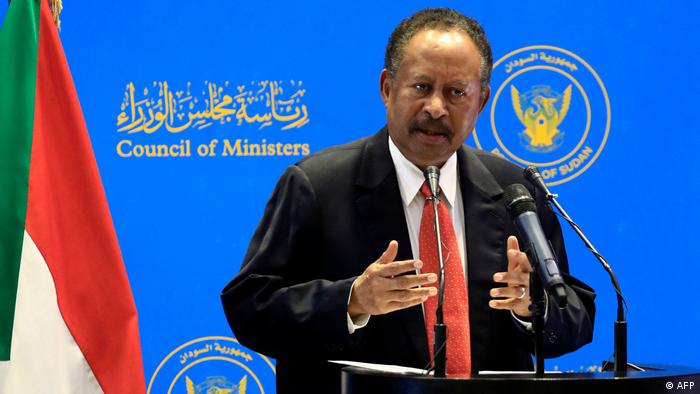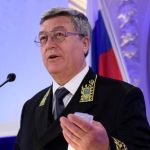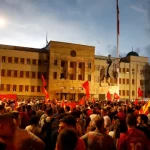The announcement about military’s withdrawal of the Sudanese current civilian government has been skeptically taken and rejected by the mainstream parties, resistance committees and other opposition groups of the country.
On July 4th Gen Abdelfattah El Burhan announced that the army will leave the current government and give the civilian opposition groups the opportunity to form a government of technocrats. El Burhan, Chairman of the Sovereignty Council and the Commander of the Sudanese army, said in a televised speech that the military would withdraw from the current national dialogue, facilitated by the AU-IGAD-UNITAMS Trilateral Mechanism.
The Sovereignty Council could be dissolved after the formation of a new, independent government of civilian technocrats to complete the tasks of the transitional period. El Burhan also said that a High Council of the Armed Forces will be formed by commanders of the army and the Rapid Support Forces which is commanded by Deputy-Chairman of the Sovereignty Council Mohamed Hamdan ‘Hemeti’ Dagalo (RSF) to assume the supreme command of the regular forces, in agreement with the new government.
Following the June 30 anti-junta Marches of the Millions that witnessed a huge turnout in more than 40 Sudanese cities and towns, activists in greater Khartoum set up these sit-ins to call for democracy and the overthrow of the military junta. The number of sit-ins demanding to overthrow the military coup regime expanded widely in Khartoum and its twin cities. Activists began a sit-in at El Rousi station in Omdurman’s El Fitihab area yesterday, bringing the number of sit-ins in the capital to six. Other Sudanese cities are following swiftly.
The mainstream Forces for Freedom and Change, the FFC-Central Council, an alliance of opposition parties and groups working on their own, unified vision for putting an end to the rule of the military called the speech “a tactical retreat in light of popular pressure”.
According to the head of the Sudanese Congress Party Omar El Degeir, Gen Abdelfattah El Burhan’s speech “smells of guardianship over the people in forming their institutions and determining the form of dialogue and government”. He claimed that El Burhan tries to camouflage the army’s real intentions and to create confusion, and which ignores the main cause of the crisis, which is the October 2021 coup. Therefore, the decisions by the military aim to fully seize sovereign power in Sudan and to keep holding the strings of the policy in Sudan. The speech did not raise any of the revolution’s demands, such as a unified professional army, the transfer of economic institutions owned by the military to the Ministry of Finance; justice, the economy and people’s livelihood as well.
The FFC-National Accord (FFC-NA) faction, a split-off group from the FFC led by a number of former rebel leaders, sees besides positive points, also a number of ambiguous points in the speech of El Burhan, that need to be clarified.
National Accord Forces (FFC-NA) supports the dialogue facilitated by the Trilateral Mechanism, and called on all political forces in the country “to engage in the dialogue and form a consensual government that will bring the democratic process back on its right track”. But they insist on the need to adhere to and complete the 2020 Juba Peace Agreement.
The mainstream Democratic Unionist Party, chaired by Mohamed Osman El Mirghani, and the National Umma Party(NUP) faction headed by Mubarak El Fadil welcomed the decisions announced by El Burhan. Both political parties said that the plans coincided with what they had proposed themselves.
However, the resistance committees active in the city neighborhoods and in the villages downplayed the importance of El Burhan’s announcement. They are convinced, that El Burhan’s decisions to form a High Council of the Armed Forces to be responsible for security and defence are worse than the previous partnership formula and emphasized the people’s adherence to full civilian rule.
Some other members of resistance committees also consider the new decisions as an attempt ‘to aim to gain more dominance and control by the military over security issues, the economy and foreign relations’. It seems that the military want to win time by showing the international community that the Sudanese civilian opposition is not united.
The mainstream Sudan Liberation Movement (SLM) under the leadership of Abdelwahid El Nur is also skeptical about the speech, saying it did not bring anything new. SLM supposes the speech is a desperate attempt to break the mass siege imposed on the putschists by the mass protests and to create a gap between the various revolutionary groups.
Meanwhile, The Sudanese Professionals Association (SPA), the driving force behind the 2019 revolution, described El Burhan’s speech ‘as a desperate attempt to cling to power’.
It says that the military plan to bring all security, foreign, political and economic powers together under the High Council of the Armed Forces. They think that any government formed under the command of this military council will be the worst of all the governments of the transitional period. Therefore, according to SPA, there is no solution but to continue escalating the protests with the aim to fully overthrow the military and civilian [Islamist] putschists. So they adhere to the Three No’s: No negotiation, No partnership, No legitimacy for the military junta.
The Communist Party of Sudan (CPoS) called the speech ‘a confirmation of the continuation of the military coup of April 2019, and a legalization of the October 2021 coup’.
CpoS’s Political Bureau announces their categorical rejection of the proposed political settlement and condemns ‘all the forces that will participate in it’.
The Sudanese Congress Party thinks that the new military council proposed by El Burhan will mean an authority parallel to the civilian government and called the speech as “nothing but misleading”, underlying the need for the continuation of peaceful resistance and the revolutionary forces to unify in order to bring down the coup.
The Sudan Revolutionary Front (SRF) alliance of rebel movements that signed the 2020 Juba Peace Agreement and supported the coup last year, did not yet announce its position regarding the speech. Three SRF leaders, Malik Agar, El Hadi Idris, and El Taher Hajar, are members of the Sovereignty Council, which, according to El Burhan, will be dissolved after the formation of a new civilian government.
Yasir Arman, Deputy Head of the Sudan People’s Liberation Movement-North faction headed by Malik Agar however, pointed out that El Burhan did not mention the rebel movements that signed the Juba Peace Agreement in October 2020. He stressed, that the speech is consistent with a confidential memorandum which the military component sent to the Tripartite Mechanism and members of the international community recently.
Arman also thinks that Burhan’s speech mainly targets the regional and international community, some of whose members are looking for quick solutions, while others are prioritizing stability over democracy, given concerns about internal and regional fragility. ‘Burhan seeks to launder a deal through the Tripartite Mechanism that legitimizes the coup by getting civilians who support the coup to choose a Prime Minister who would receive his orders from the General Command, something that was rejected by Salvador Allende in Chile and who paid for it’, Arman stated.





